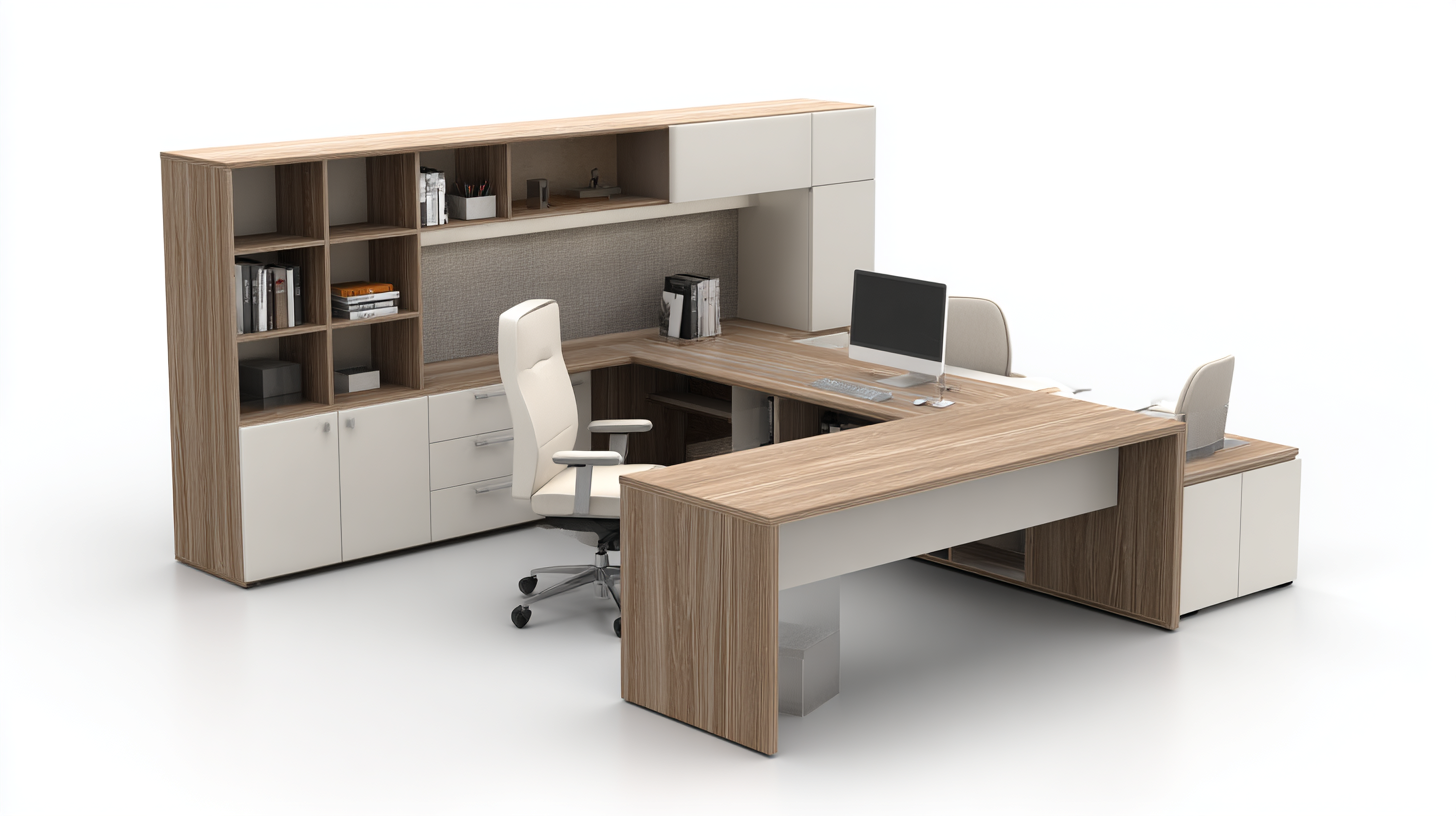Maximizing Value: The Impact of After-Sales Support on Maintenance Costs for Best Office Furniture Sets
The importance of after-sales support in the office furniture industry cannot be overstated, especially when considering the direct impact it has on maintenance costs and overall value for businesses. According to a recent report by IBISWorld, the office furniture manufacturing sector in China is expected to reach a value of $20 billion by 2025, driven by increasing demand for durable and quality office furniture sets.

Furthermore, studies show that effective after-sales service can reduce maintenance costs by as much as 30%, allowing companies to allocate budget resources more efficiently. This blog will explore how focusing on quality and reliable support not only enhances customer satisfaction but also contributes to the sustainability of furniture investments. As China's manufacturing capabilities continue to lead the global market, understanding the correlation between after-sales support and cost efficiency becomes essential for businesses looking to optimize their office environments.
The Critical Role of After-Sales Support in Reducing Maintenance Costs
After-sales support plays a crucial role in maintaining the longevity and functionality of office furniture, directly impacting maintenance costs. When businesses invest in high-quality office furniture, the promise of efficient after-sales service can often be a deciding factor. Whether it’s providing timely repairs, offering routine maintenance check-ups, or supplying replacement parts, robust after-sales support ensures that furniture remains in optimal condition, thereby minimizing unforeseen expenses associated with neglect or damage.
The long-term benefits of effective after-sales support are manifold. Firstly, timely support can prevent small issues from escalating into major problems, which often incur higher repair costs. Secondly, a knowledgeable after-sales team can provide valuable insights on proper usage and maintenance practices, guiding users in the care of their furniture. This education not only enhances the furniture's lifespan but also fosters a proactive maintenance culture within the organization, ultimately leading to significant savings on maintenance costs. Thus, investing in after-sales support is not merely a supplementary service but a strategic approach to maximizing value and minimizing expenses.
Maximizing Value: The Impact of After-Sales Support on Maintenance Costs
This chart displays the annual maintenance costs associated with different levels of after-sales support for office furniture. As seen, providing premium support significantly reduces maintenance costs compared to having no support at all.
Exploring Industry 2025 Tech Trends Impacting Office Furniture Durability
As we approach 2025, emerging technology trends are reshaping the landscape of office furniture durability. A recent report by Allied Market Research highlights that the global office furniture market is projected to reach $87.5 billion by 2025, driven largely by advancements in materials and technology. Innovations such as sustainable materials and smart furniture that integrates IoT have become essential in enhancing the lifespan and functionality of office furniture. These developments not only improve durability but also align with the increasing demand for environmentally-friendly solutions.
Moreover, the integration of augmented reality (AR) in designing office furniture is revolutionizing maintenance strategies. According to a study by Technavio, the use of AR in furniture planning can reduce design errors by up to 30%, leading to more efficient use of materials and better durability. By leveraging these cutting-edge technologies, companies can minimize maintenance costs and improve customer satisfaction through enhanced after-sales support. This proactive approach not only maximizes the value of office furniture sets but also fosters a more resilient and efficient workplace environment.
Quantifying the Financial Benefits of Comprehensive After-Sales Services
Comprehensive after-sales support plays a crucial role in managing the maintenance costs of office furniture sets. Businesses often overlook the long-term financial benefits that come from investing in robust after-sales services. By providing detailed maintenance guidelines and timely support, furniture manufacturers can significantly extend the lifespan of their products, leading to lower replacement costs. Quantifying these benefits can reveal substantial savings for organizations that prioritize ongoing support.
Tip 1: Always inquire about the after-sales services provided by the manufacturer before making a purchase. A company that offers training, maintenance schedules, and quick response to issues can save you time and money in the long run.
Tip 2: Consider the warranty coverage when selecting office furniture. Comprehensive warranties not only cover repairs but often include regular inspections, which can help identify potential issues early and mitigate costly repairs later.
Investing in after-sales support not only enhances the functionality of office furniture but also provides significant financial returns through reduced long-term maintenance costs. Emphasizing these services in your procurement strategy could prove invaluable as your business evolves.
Best Practices for Maximizing Value through Effective After-Sales Strategies
Effective after-sales support plays a crucial role in maximizing the value of office furniture sets, particularly in reducing long-term maintenance costs. Companies often overlook the significance of these services, yet they are essential for ensuring customer satisfaction and loyalty. By offering personalized follow-up services, such as setup assistance and regular check-ins, businesses can help clients maintain their furniture products better, thereby prolonging lifespan and functionality. This proactive approach means less frequent replacements and repairs, ultimately leading to significant cost savings.
In addition to personalized services, implementing a comprehensive warranty program can also enhance after-sales support. Providing extended warranties sends a message to customers that the company stands behind its products. This assurance can not only increase customer trust but also mitigate expenses related to unexpected damages or malfunctions. Training staff to offer in-depth product knowledge and troubleshooting tips can further empower customers to address minor issues independently, reducing the likelihood of service calls and enhancing the overall ownership experience. Adopting these best practices in after-sales strategies not only maximizes value for the customer but also solidifies a company's reputation for exceptional service.

Case Studies: Successful After-Sales Support Models in Office Furniture Industry
In the office furniture industry, after-sales support has emerged as a critical factor in reducing maintenance costs and enhancing customer satisfaction. Successful models in this area not only ensure clients have access to necessary services but also establish a long-term relationship built on trust and reliability. For instance, a leading office furniture provider implemented a robust support system that includes regular maintenance checks and a dedicated helpline. This model not only lowered operational downtime but also allowed the company to gather valuable feedback, leading to continuous product improvements.

Another noteworthy case involves a furniture manufacturer that introduced an online platform enabling customers to schedule repairs and order replacement parts easily. This initiative not only streamlined the support process but also fostered a sense of engagement with customers. By tracking service requests and utilizing predictive maintenance strategies, the company significantly reduced unforeseen service costs. Such after-sales support models demonstrate that proactive customer engagement can lead to substantial savings and foster brand loyalty in a competitive market.
